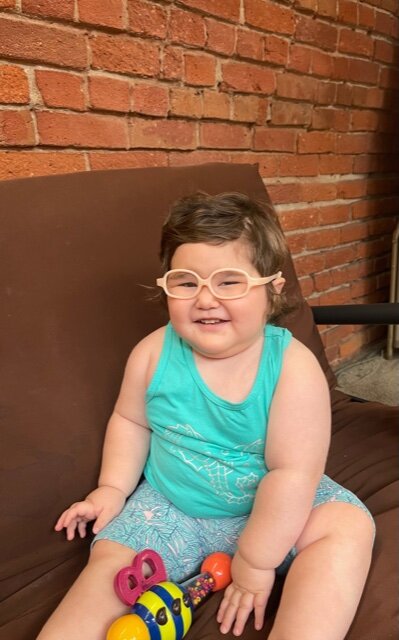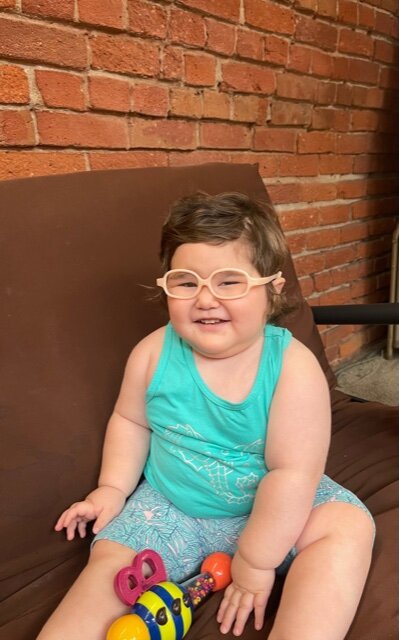Meet Azalea, 2, a silly music loving two year old who lives in Sacramento, California.
Azaleas parents started this journey with a couple of trips to the ER due to episodes of non-specific vomiting, and received the most devastating news a parent is ever prepared for. On the 14th of September 2020, Azalea was diagnosed with a very large craniopharyngioma for her tiny brain and body.
Before the diagnosis Azalea was a normal baby, meeting all milestones.
According to Azalea’s mom, Kirsten:
“After five surgeries – one biopsy craniotomy and multiple shunts, there was no plan for the future and she was going blind. We flew her to Boston Children’s, where she had a full resection the next day after arriving in their ER. Surgery had to be done in two parts over 17 hours. Excellent doctors saved her life. If her tumor wasn’t removed she most likely would have died by Christmas.”
“At Boston she had a pretty extensive stay — almost three months — due to many complications including seizures, posterior reversible encephalopathy syndrome (PRES), vassospasms and large subdural fluid collections from the surgeries. She now has a shunt that she may not need her whole life, but time will tell.”
As a result of the craniopharyngioma, Azalea developed diabetes insipidus (DI), [the brain’s inability to manage the body’s fluid balance]. With Azaleas age, management of DI is especially complicated as she also non-verbal for the most part. We are not sure if she drinks for thirst or comfort. We measure all ins and outs, but her sodium swings very easily, and to get a sodium test requires a trip to the lab on the other side of town and with closures due to holidays and the results can sometimes take more than six hours.”
“She is home now and struggles daily with all the usual endocrine issues that come with this tumor, since she has no pituitary gland. But we are thankful everyday to have her and will continue to advocate for her and get her stronger.”
The Raymond A. Wood Foundation provided the Music family with a handheld blood analyzer in July to allow for better care management of Azalea’s fluid balance and sodium at home. These devices are critical particularly for pediatric patients for keeping blood sodium levels in range. Out of range sodium can result in seizure, coma and could be fatal. Currently there is no FDA-approved way to test blood sodium at-home, however RAWF has initiated a project to develop a device for this application.
Providing these devices are only possible with donor support. Please consider a donation to help families get the tools they need to better care for these critical patients.


